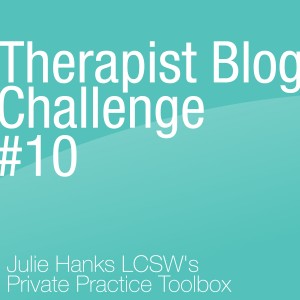 Let an awareness day or month inspire your next professional blog post.
Let an awareness day or month inspire your next professional blog post.
Each year we celebrate a variety of awareness dates that highlight and bring attention to a variety of challenges that people face in the U.S. and across the world. October is National Depression, Mental Health Screening Month, and World Mental Health Day. These awareness dates can make for easy blog topics. Find an awareness date that matches the work and client you are passionate about and let it inspire your next blog article.
This post can be an excellent opportunity to educate your clientele. Find statistics from reputable sources to share with them regarding the particular topic you hope to bring awareness to. Post or share quizzes, assessments or symptom lists. Share events that are happening in your area that they might be interested in attending. Remember to post on or before the date you would like to highlight!
Here are some ongoing or upcoming dates for 2013:
October
- Depression & Mental Illness screening month
- ADHD Awareness Week (Oct. 13 to 19)
- OCD Awareness Week (Oct. 14 to 20)
- National Bullying Prevention Month
November
- Survivors of Suicide Day (Nov. 23)
December
- International Day of Persons with Disabilities (Dec. 3)
Lists of these awareness dates can easily be located online and happen during almost every month of the year. Dates include everything from Mental Health Month to things like Schizophrenia Awareness Week. So, what are you waiting for. Get blogging to raise awareness for a cause close to your heart.
This part is new! Once you've written your blog post, click the option below "click to view/add link" and to post it on the link party below!
Additional reminders about the 2013 blog challenge
- Write and post your blog article in the next 2 weeks. If you miss the deadline or you read this article months later, that’s OK too.
- Post a link for this blog challenge in the InLinkz widget above.
- Read, comment, and share other therapist’s articles.
- Tweet your post using hashtag #therapistblog and tag @julie_hanks so I can retweet it.
- Pin it on the challenge Pinterest Board. I’ve invited everyone who posted a comment on the initial blog challenge post as collaborators so you can pin onto the group board.
- Spread the word and invite mental health colleagues to join the challenge. Articles can be added anytime throughout the year.
- Write no more than 600 words, make it easy to read, use a conversational tone, and gear your articles toward your ideal client (not other professionals).
- The goal of a professional blog is to provide value to your website visitors, help them get to know your professional perspective, increase traffic to your private practice website, and build your practice.



As healers, we genuinely like to do our work. Guiding clients through the therapy process and seeing them make progress is why we do what we do. But if you're in private practice, you know there's a lot going on in the back end and that it's crucial to run an efficient and organized business.